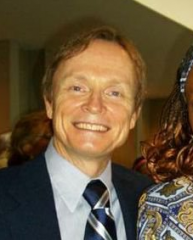

Gregory Watson entered the doctoral program at the Harvard Graduate School of Education (HGSE) in 1987 with a Master’s degree in education, acquired under the supervision of Dr. Daniel Jordan, founder of the Center for the Study of Human Potential at the University of Massachusetts. His studies in the ANISA Model focused on psychological learning processes and domain-related “competencies” (which are similar to what Harvard Professor Howard Gardner later referred to as “multiple intelligences”). At Harvard, Watson obtained a second Master’s in Education, in the context of International Development—with a dual emphasis on administration and psychological development. In that study, Watson designed and trained 70 familes to teach toddlers to read at 2nd grade level before starting school, believing that we can piggy-back literacy on the back of the critical period in brain development for early language acquistion (birth to age 3). He presented this to the Association for Baha’I Studies in 1989:
- https://watsongregory.homestead.com/files/parents.html
- https://watsongregory.homestead.com/files/litbahai.html
- https://watsongregory.homestead.com/files/emp_new.html
During his time at Harvard, he served for several years as a research fellow at the Harvard Institute for Development (HIID), and as a consultant to the Conflict Management Group (CMG) born out of the Program of Negotiation at the Harvard Law School. On loan from Harvard, he worked as a consultant to the U.S. Dept. of Education in Washington for summer terms as a grant reader for the Native Alaskan program and the Migrant Education Even Start program.
In 1991, Watson represented the Baha’i International Community during the launch of the World Decade for Cultural Development at the U.N., presenting the long history of Baha’i experience in cultural and community development—the Baha’is having consultative status at the U.N. as an NGO since 1970, the year Watson became Baha’i – https://watsongregory.homestead.com/files/un_talk.html In 1989, as a member of the Greater Boston Baha’i Community School Advisory Board, he outlined the curriculum framework for schools , emphasizing self-knowledge (“reality of man”) and education elements informed by the Baha’i Writings.
In his doctoral thesis, Watson combined psychology with social policy, developing a “systems model” for world citizenship education—seeing global citizenship as the moral ethic of global competency. Later he presented this as “oneness education” in China, in numerous schools, over a 3-year period (2016–2019), and for the Chinese Diaspora after returning to the United States: Joining the faculty at the University of Massachusetts while he was at Harvard, Watson taught developmental psychology in the Graduate Program for teachers.



